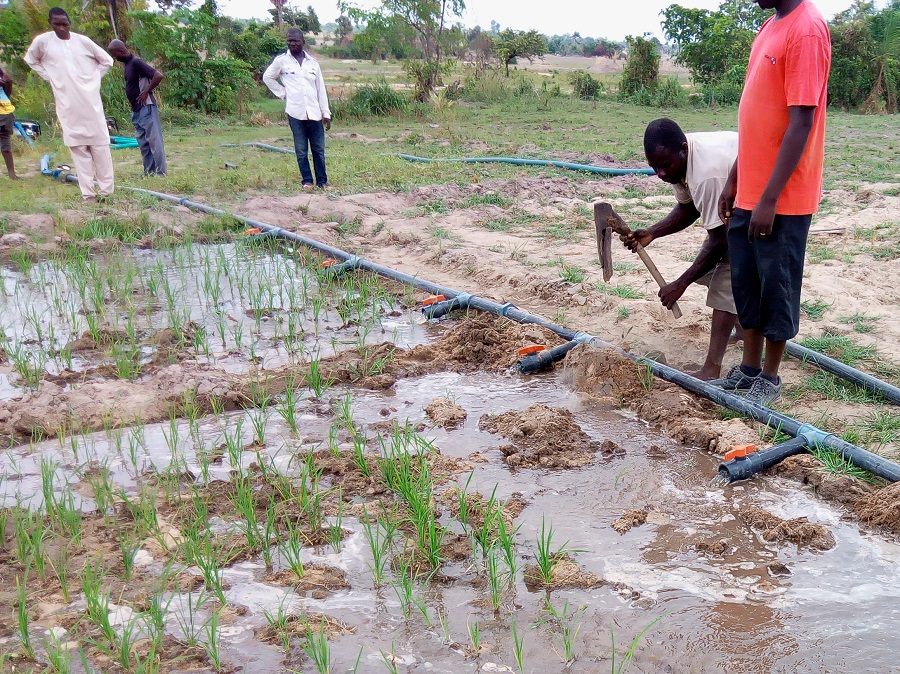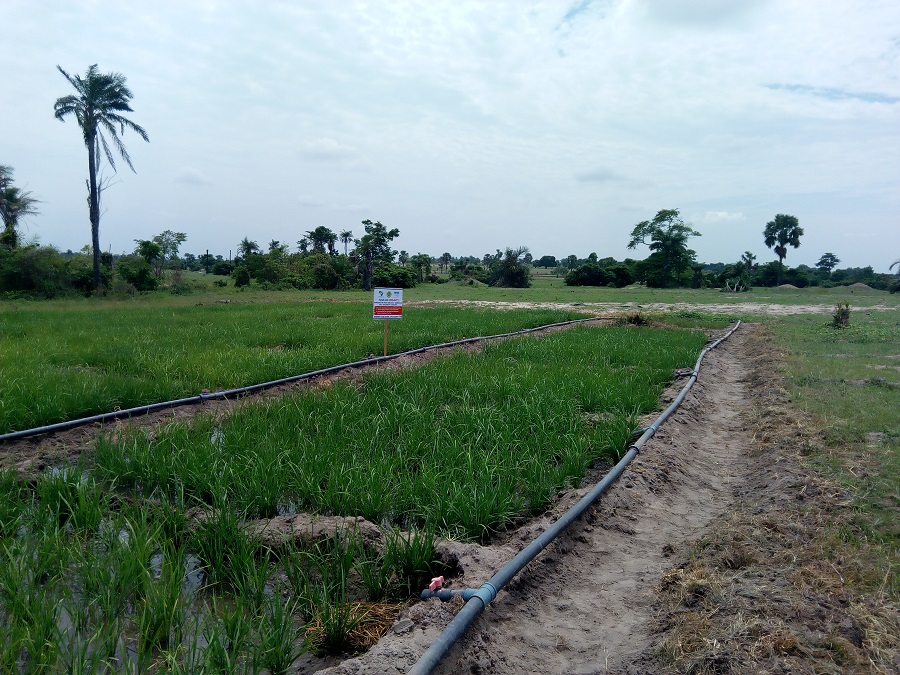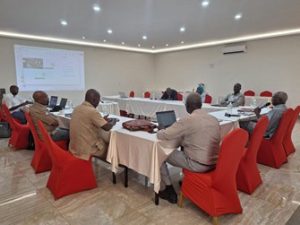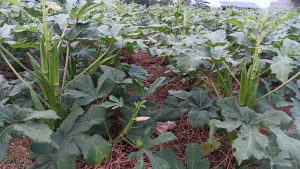Nigerian rice farmers to double income through double cropping

By Matilda Dennis Quaicoe
Rice farmers in Nasarawa State, North-Central Nigeria, can now cultivate rice all year round – thanks to the introduction of modern rice technologies.
Collaborators from the Water Enabler Compact of the Technologies for African Agricultural Transformation (TAAT) programme demonstrated to rice farmers how modern limited investments in water-efficient irrigation systems allow dry season cultivation.
The irrigation system – that is designed of shallow tubewells, petrol pumps, and a pressurized PVC pipe conveyance system – permits lifting ground water resources that are available year-round and distributes water to the fields with zero losses.
“The relatively low investment costs make this a very attractive opportunity for farmers to intensify agriculture and significantly increase their income”, says Professor Henry Igbadun, the national coordinator of the TAAT-WEC program in Nigeria.
“Farmers now cultivate rice as a second crop during the dry season, but possibilities for cultivating alternative and more lucrative crops – such as tomatoes and other vegetables – are numerous,” he added.
Farmers in the region are delighted about the new technologies brought by TAAT-WEC as they realize it has good prospects for expansion of agricultural activities and new income generation. Prior to the introduction of this system, farmers were discouraged from pursuing dry season cultivation due to the high costs involved as well as lack of knowledge on good water management practices.
Chairman of the Bukan-Sidi Rice Innovation Platform, Mr. Joshua Jonathan commended TAAT-WEC for the initiative in Nasarawa State. “The gesture is a solution to the lingering water management challenges faced by dry season rice farmers in the state,” he said.
Although there is high potential for rice production in Nigeria, low yields have caused local production to lag behind rising demand, resulting in a large rice import bill for Africa’s most populous country.
Limited access to water is a principal reason for low production in Nasarawa and adoption of such technologies could contribute to increase of production in Nigeria and lowering of rice imports.
The innovations are brought by the Water Enabler Compact (WEC) of the Technologies for African Agricultural Transformation (TAAT)

program.
Believing that Africa should feed itself, the African Development Bank (AfDB) launched the Feed Africa Initiative with TAAT as one of the seven cardinal programmes of the Initiative.
Drawing from this initiative, the TAAT Water Enabler Compact promotes the widespread adoption of proven irrigation and water management technologies by small-scale farmers across Africa.
The compact is is coordinated by the International Water Management Institute (IWMI).
In Nigeria, IWMI partners with the Institute of Agricultural Research (IAR) and the activities are coordinated by Professor Henry Igbadun. TAAT-WEC further engages the TAAT Rice Compact with a view to boosting the productivity of rice farmers by using modern rice varieties and good agricultural practices. The TAAT rice compact is represented in Nigeria by Dr. Samuel Bakare of the National Cereals Research Institute (NCRI).
Recent Stories
Related Stories
- TAAT excites Nigerian Youths with new irrigation technologies for dry season farming
- TAAT holds Agribusiness Training for Nigerian youth
- TAAT records success stories with agribusiness park for youths in Nigeria
- Scale up of Quality GEM parboiled rice leads to increase in livelihood opportunities in Nigeria
- TAAT trains 2000 Youth farmers on rice production





